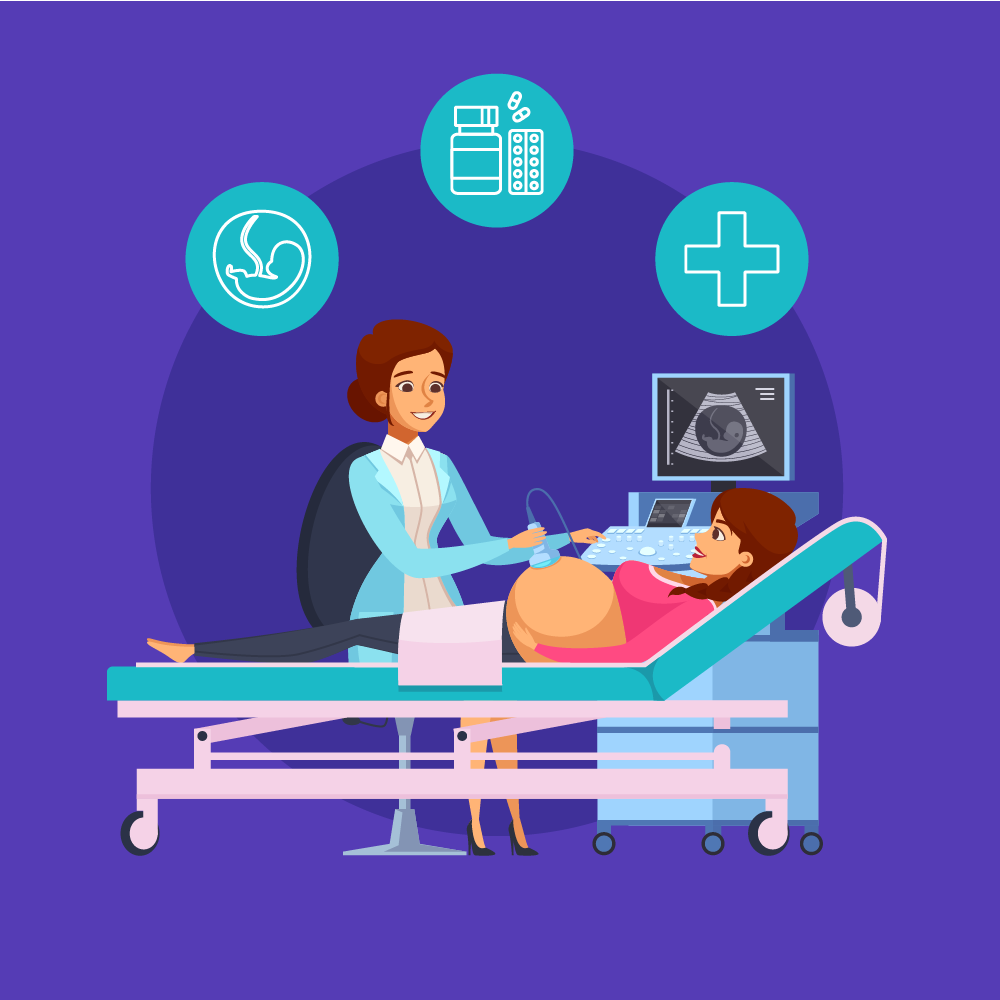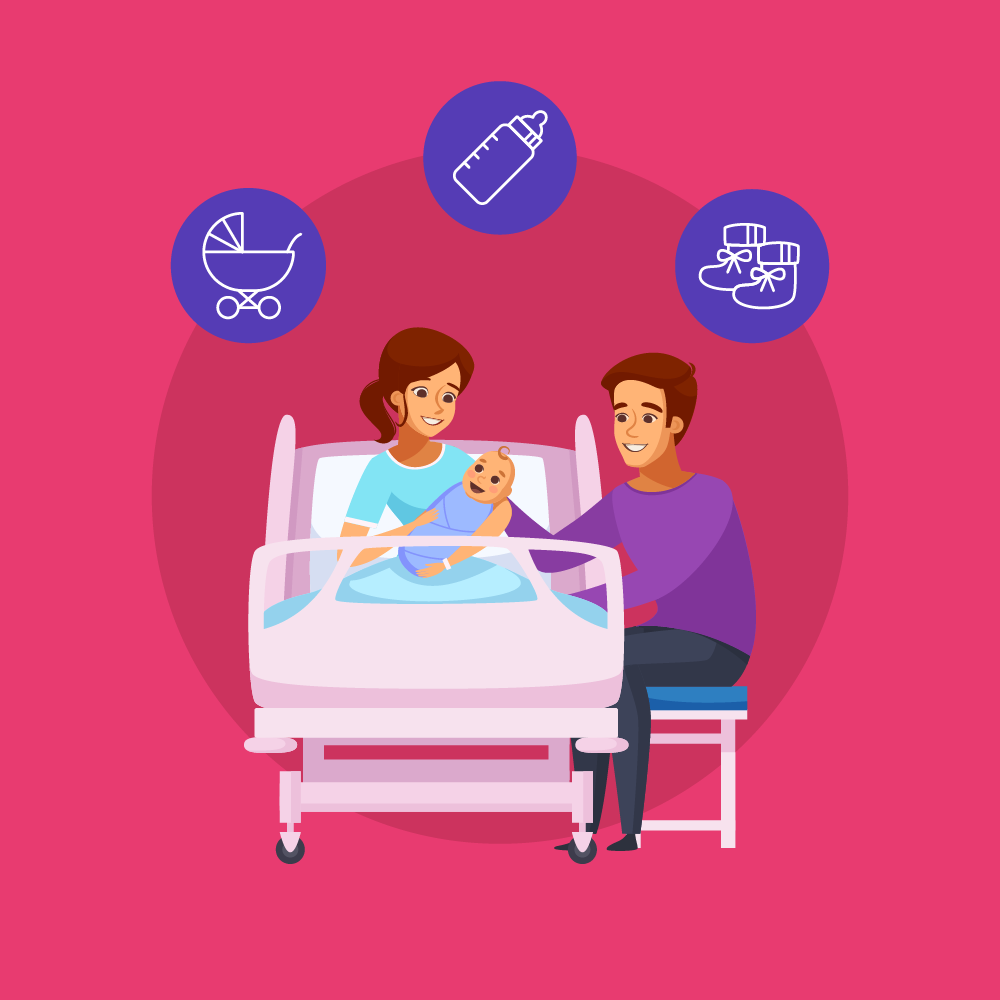When you are pregnant, there must be a lot of questions running in your mind as what care you must take, what to eat and what to avoid, what precautions you must do and what must not do.
This PREGNANCY SECTION is designed to be a resource for all the women who are planning pregnancy or are pregnant or just became new parents. With my 12 YEARS EXPERIENCE helping hundreds of thousands of pregnant patients, this site will have all the wealth of Important ONLINE INFORMATION regarding pregnancy and the compassionate journey to motherhood. This section will provide the holistic approach to caters to women interested in HEALTHY PREGNANCY, childbirth, and a HAPPY POSTPARTUM.
Even though a lot of people expect to recognize the “perfect time” to have a baby, the reality is the timing may never feel totally perfect.
Parenting can be joyful, rewarding, and life-changing — many parents say it’s the best decision they ever made. The loving bond you share with your kids and the pride you take in your child’s accomplishments can be really fulfilling. But before planning a pregnancy, ‘ FIRST ASK YOURSELF’ if you have Time, energy, planning and most importantly financial stability to raise a child.
Always consult your doctor before planning a pregnancy as it may help you to avoid potential problems that may accompany your pregnancy.
Your doctor will check your physical and mental health, and may screenings you for some diseases in advance to make sure you have a healthy pregnancy. They can also guide you on how to get pregnant.
Your doctor will ask about your:
Getting pre-pregnancy care from an expert doctor, before you get pregnant, and having regular prenatal care visits throughout your pregnancy are great ways to help lower your chances of having a high-risk pregnancy.
Certain conditions can make pregnancy more difficult. It’s especially important to get per-pregnancy care if you have-
Your partner can play a big role, if you want them to. Encouragement and emotional support can be really helpful and important, especially if you’re making changes to your lifestyle as you get ready for pregnancy.
your partner or sperm donor’s health is also important when it comes to getting pregnant. Diet and lifestyle can lower sperm count and semen quality. This can make it harder to get pregnant.
Some things that can lower sperm count include:
Talk to your partner about making lifestyle choices that can help their health and your future pregnancy.
A missed period is often the first sign that you may be pregnant, but how do you know for sure??
Pregnancy tests are an easy and accurate way to find out if you’re pregnant — you just pee on a stick. Pregnancy tests are most accurate when you take them after you’ve already missed your period. They’re inexpensive and available at most drug and grocery stores or you can ask from your fertility doctor.
Pregnancy tests work by checking your urine (pee) for a hormone called human chorionic gonadotropin (HCG). Your body only makes this hormone if you’re pregnant. HCG is released when a fertilized egg attaches to the lining of your uterus — when pregnancy begins. If your pregnancy test results are positive, it means you’re pregnant. If they’re negative, it means you’re not pregnant.
Pregnancy test are not always reliable or accurate like in case the UPT kit is expired our if you don’t use it the right way or your period are not regular, they may give false negative n rarely false positive results. So always check the expiration date on the package, and carefully read the directions that come with your pregnancy test.
In special case like in case of an IVF pregnancy or when result of UPT in inconsistent you may have to get your blood test of BHcg to finally confirm your pregnancy….

If you take a pregnancy test after you miss your period and the result is positive, that means you’re pregnant. You can always take another test to be sure, if you want.
All pregnant women should always go to your doctor or your fertility clinic to get a follow-up test… Excellent care during pregnancy and childbirth may prevent Maternal and infant mortality
(1st, 2nd, and 3rd Trimester)-
Pregnancy is divided into 3 trimesters. Each trimester is a little longer than 13 weeks. The first month marks the beginning of the first trimester.
Pregnancy timing is measured using “gestational age.” Gestational age starts on the first day of your last menstrual period (LMP).
A typical pregnancy lasts 40 weeks from the first day of your last menstrual period (LMP) to the birth of the baby. It is divided into three stages, called trimesters: first trimester, second trimester, and third trimester.
Gestational age can be confusing. Most people think of pregnancy as lasting 9 months. And it’s true that you’re pregnant for about 9 months. But because pregnancy is measured from the first day of your last menstrual period — about 3-4 weeks before you’re actually pregnant — a full-term pregnancy usually totals about 40 weeks from LMP — roughly 10 months.
Many people don’t remember exactly when they started their last menstrual period — that’s OK. The surest way to find out gestational age early in pregnancy is with an ultrasound.
Conception to about the 12th week of pregnancy marks the first trimester. A woman undergoes various Physical and emotional Changes during this time. She may also experience
Hormonal changes which affect almost every organ in the body. Some signs of early pregnancy in many women include symptoms like:


CONTACT YOUR DOCTOR
Speak to your doctor if you observe

Pregnancy symptoms often become very noticeable when you’re 2 months pregnant. Your nausea (morning sickness) and fatigue may lessen or go away completely. By the end of the second trimester you will even be able to feel your baby move!
Some changes you may notice in your body in the second trimester include:
Itching on the abdomen, palms, and soles of the feet.
If you are diagnosed with the GDM (gestational diabetes Miletus), meet a nutritionist to keep it under control.
In the third and final trimester you will notice more physical changes, including:

Other changes are happening in your body during the third trimester that you can’t see. As your due date approaches, your cervix becomes thinner and softer in a process called effacement that helps the cervix open during childbirth. Your doctor will monitor the progress of your pregnancy with regular exams, especially as you near your due date.
contact your health care professional immediately if you experience –
We advise you to follow all these during pregnancy to enjoy your pregnancy and mommy hood to the fullest.
